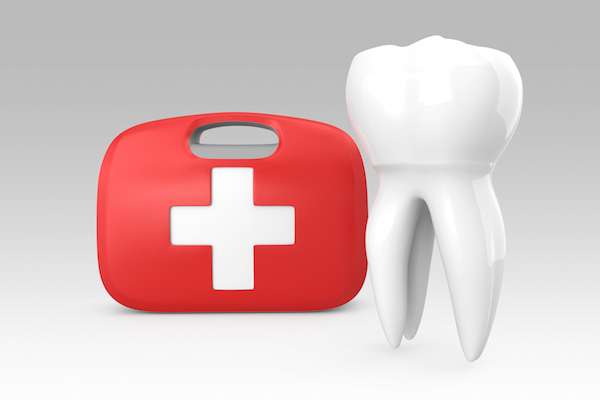Why You Should Avoid the ER for Emergency Dental Care
 Patients who are dealing with severe dental issues may think they should go to the ER for emergency dental care. This, however, is often ill-advised, as it may not be helpful in providing the proper treatments needed and can result in other problems arising.
Patients who are dealing with severe dental issues may think they should go to the ER for emergency dental care. This, however, is often ill-advised, as it may not be helpful in providing the proper treatments needed and can result in other problems arising.
Why emergency dental care isn’t a job for the emergency room
The following are a couple of reasons why patients should not go to an emergency room to try to receive dental care.
1. Limited treatment options
Emergency room doctors are often unable to provide much help for patients who are in need of emergency dental care. A dentist is the only professional who has the training to perform procedures such as pulling teeth or filling cavities. It is highly unlikely for an emergency room to have a dentist available on call. ER physicians are only able to prescribe painkillers to temporarily numb the pain and antibiotics to treat any infection that may be present. Neither of these solutions are a permanent fix to an emergent issue.
2. Astronomical costs
Many patients are unable to afford insurance and therefore cannot go to the dentist for routine cleanings and exams. This can result in those with issues such as pain, abscesses, severe toothaches and bleeding gums to ignore the problem and forego immediate dental care until it eventually becomes a serious and unbearable emergency. A visit to the emergency room is extraordinarily costly and typically results in a large bill and a referral to a dentist for treatment. A dental visit would typically cost less than a visit to an ER and allow for more targeted treatment of the problem.
How to avoid the need for emergency care
There are a few simple solutions for patients to follow to avoid emergency dental issues. Patients should practice proper dental hygiene procedures, such as brushing and flossing teeth twice a day, to preclude any complications from arising. Preventative care is also important; regular exams can catch dental problems quickly to stop them from turning into emergencies.
Patients should never ignore any pain. It is the body’s way of saying something is wrong, and ignoring such an issue can cause additional problems and more pain in the future. Those who are experiencing tooth or gum pain should contact a dentist as soon as possible. Waiting for too long can result in further issues that are likely to require more involved treatments.
Check out what others are saying about our dental services on Yelp: Emergency Dental Care in Forest Hills, NY.
Conclusion
For many oral-health related issues, going to an emergency room for dental care is not advisable. Due to issues such as high costs and limited treatment options, patients needing emergency dental care should instead schedule a visit with a dentist as soon as possible. It is also important for patients to avoid the need for emergency care by practicing proper oral hygiene as well as scheduling routine exams. Preventative care can help avoid a lot of pain and dental issues as well as save a considerable amount of time and money.
Request an appointment or call Gentle Touch Dental Care at 718-924-2387 for an appointment in our Forest Hills office.
Related Posts
Wondering whether a general dentist can help with dental emergencies? Read on to learn more. What is important to know is that dentists are trained and equipped to treat dental emergencies quickly and efficiently.There is plenty to know about dental emergencies. It is a good idea to know whether your dentist can be called if…
Receding gums are the result of a severe case of gum disease (known as periodontitis) that is left untreated. If you have receding gums, then there is an increased risk of experienced sensitive teeth as well as other discomforting symptoms.If left untreated, receding gums can lead to the loosening and ultimately the loss of teeth…
Worried about receding gums? Read on to learn about how to prevent this condition. Receding gums can put the long-term health of teeth at risk. The good news is that mouthwash, along with other at-home oral care routines and regular cleaning and check-up visits with your dentist, can significantly reduce the risk of periodontal (gum)…
